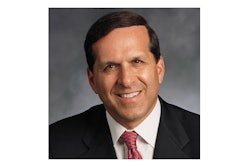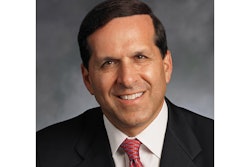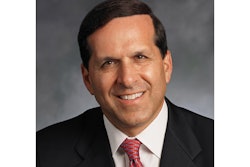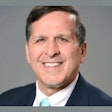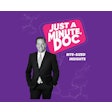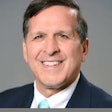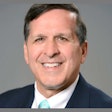When speaking at seminars, dentists often ask me what the key ingredients are for building an excellent practice that generates strong financial performance. While many aspects contribute to practice excellence, perhaps none is more important than building an outstanding team.
Current dental staffing trends
 Dr. Roger P. Levin.
Dr. Roger P. Levin.
One of the most prevalent conversations in dentistry is about the current staff shortage, which is actually a staffing crisis. Having studied this crisis since the start of the pandemic, Levin Group believes that the staffing shortage will persist for a minimum of 10 years, absent any radical changes in dental regulations and board requirements.
It is important to recognize this trend but not allow it to derail progress for the practice. Here are three important factors.
The shortage is real, and as a result, expectations for higher staff compensation have increased. To attract and retain good team members, many practices now need to set their salary levels at the 80th percentile for their market. The internet has made transparent many previously confidential areas of information, and now most staff can see exactly what the “going rates” are for their job and what other practices are offering. In most cases, a happy staff member will not leave simply to make a little bit more money in another practice, but when the differential is large, the money is a strong lure. A practice that is significantly low in compensation can expect to have high turnover.
Along with the scarcity of candidates to fill positions, many potential team members today do not have the requisite training for the job. There are two simple reasons for this. First, many potential team members are younger, inexperienced, and have not individually pursued the knowledge base that is needed to do the job. Second, dentistry has become increasingly complex, technology-based, and administratively complicated compared to 10 years ago. As the skill level for a job in a dental practice (ranging from assistant to hygienist to front desk) becomes more comprehensive, team members will need specific and individual training, or the result will be higher levels of inefficiency. Inefficiency lowers practice production and profit in every case.
- Retain existing team members as long as you can. The best way to hire new team members is to keep the ones that you have. The process of recruiting, interviewing, and hiring new team members is time-consuming and often unpleasant. There are team members who accept positions and never show up, others who accept positions to stay a short time, and still others who misrepresent their skill set and capabilities.
Creating a real team
The concept of team is highly misunderstood in dentistry. We have given the label of team to the staff members in our office, but are your staff members really functioning as a team? What are the key characteristics of a real team?
First, a real team is supportive and does not have boundary lines. You will not hear a member of a real team say, “That’s not my job.” They are more likely to say, “How can I help you?”
You don’t have the back-and-forth feeling of people not pulling their weight in response to others not willing to pitch in. They function together in order to get a great result. Just imagine a football team where half of the offense really doesn’t get along with the other half and they refuse to coordinate what is happening. That team would be a guaranteed loser.
Second, a team is made up of individuals and their strengths. Focus on the strengths of each team member. There is a body of research in the business world assessing the strengths of employees and putting them in the right positions. Don’t ask an assistant to become an outstanding office manager when she has no training and only a few years of experience. Trusting someone is wonderful, but being able to actually do a job is different.
Most dental office managers have no management background, training, or experience, which means they are not real managers. They need education, guidance, and measurement, just like every other team member. Is your office manager responsible for hitting production goals, and are you measuring progress and giving them meaningful and regular feedback?
Third, and you’ve heard this so often that it may fall on deaf ears, you need to build a real culture to build a real team. Teams function differently than individuals.
An individual might work for an office because they are highly compensated, they live nearby, or they’re too lazy to find another position, or they only have a few more years until retirement. Conversely, teams function based on culture. Culture is everyone understanding how to behave, what is expected in terms of that behavior, and what the results are to be.
Excellence in dental practice can focus on hundreds of different things. Scheduling, case presentation, no-shows, overdue patients, insurance analysis, etc. These are all important, but if there’s one overriding factor that we have observed in excellent dental practices for many years, it is to have a real team that is trained, understands the goals, and is able to achieve them. Sometimes bonus systems can be a great motivating factor to add to the equation, but when you have a real team with happy staff members and satisfied patients, your practice will increase, profit, and have fun.
Dr. Roger P. Levin is CEO of Levin Group, a leading practice management and marketing consulting firm. To contact him or to join the 40,000 dental professionals who receive his Practice Production Tip of the Day, visit LevinGroup.com or email [email protected].
The comments and observations expressed herein do not necessarily reflect the opinions of DrBicuspid.com, nor should they be construed as an endorsement or admonishment of any particular idea, vendor, or organization.




